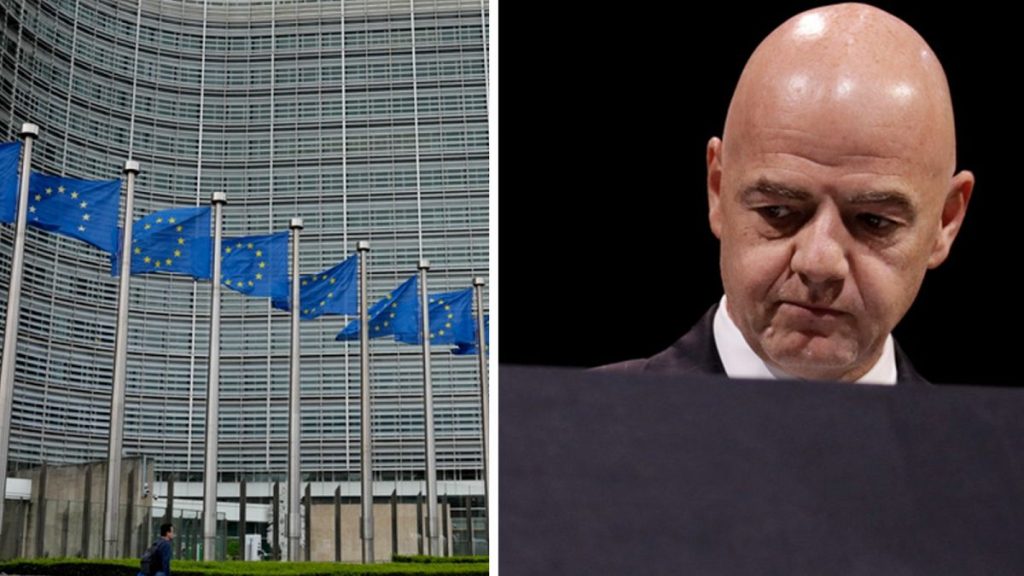European football leagues and players are raising concerns about an oversaturated international match calendar that they argue puts players’ welfare at risk. In a joint statement, European Leagues and FIFPRO Europe are challenging FIFA’s decisions to expand the FIFA World Cup and introduce a 32-team version of the Club World Cup, claiming that these decisions favor FIFA’s interests over those of national leagues and players. The complaint alleges that FIFA’s actions violate EU competition law and abuse its dominance in the sport, leading to economic harm for national leagues and potential health risks for players.
The battle between football leagues and FIFA has intensified in recent years, with national leagues and player unions feeling consistently excluded from the decision-making process despite their opposition to the new calendar. The complaint, which is set to be filed by European Leagues, La Liga, and FIFPRO Europe, will be part of a series of actions taken at both the national and European levels. This legal challenge follows a previous ruling by the European Court of Justice that found FIFA and UEFA abused their dominant position as regulators and competition organizers in a case involving a breakaway Super League.
FIFA responded to the legal complaint by calling it ‘hypocritical’ and defending its current calendar as one that was unanimously approved following a comprehensive consultation process that included input from FIFPRO and league bodies. The world football governing body accused some European leagues of acting in their own commercial interests and without considering the broader impact on the global football community. FIFA manages the international games and tournaments calendar, dictating when clubs must release players for national team duty, a process that has been a point of contention with top-tier leagues that have not felt adequately consulted on the latest version of the calendar.
The European Commission in Brussels, as the executive arm of the European Union, has the authority to intervene in cases of alleged breaches of competition law. FIFA’s handling of the international match calendar has come under scrutiny, with concerns about player welfare and the overall impact on the football ecosystem. National leagues that shut down their domestic programs for international fixtures have expressed frustration with what they perceive as a lack of transparency and consultation in the decision-making process. The legal challenge from European Leagues and player unions marks a continued effort to hold FIFA accountable for its actions and advocate for the interests of leagues and players at the European level.
The ongoing dispute between European football leagues and FIFA reflects broader tensions within the sport over governance and decision-making processes. As the international match calendar becomes increasingly congested, concerns about player welfare and the economic impact on national leagues have come to the forefront. Despite FIFA’s insistence that its current calendar was approved through a thorough consultation process, critics argue that the interests of national leagues and players have been sidelined in favor of FIFA’s commercial objectives. The outcome of this legal challenge and the European Commission’s response will have significant implications for the future of international football and the relationships between governing bodies, leagues, and players.


